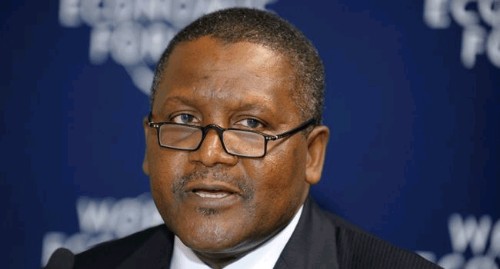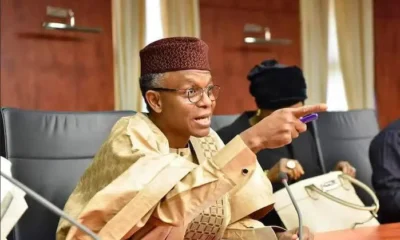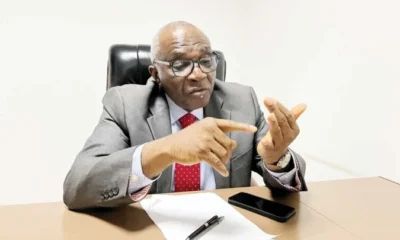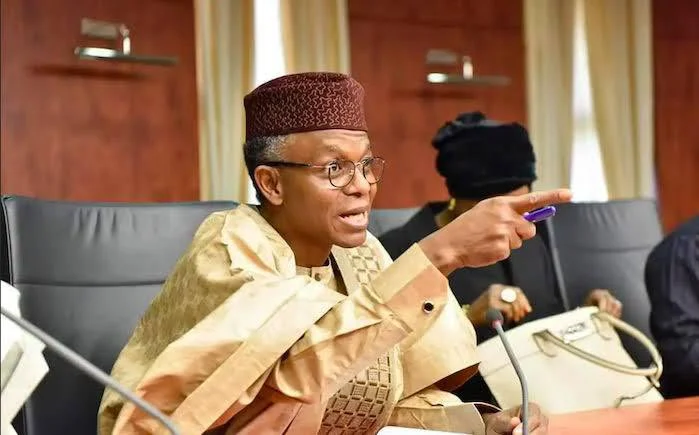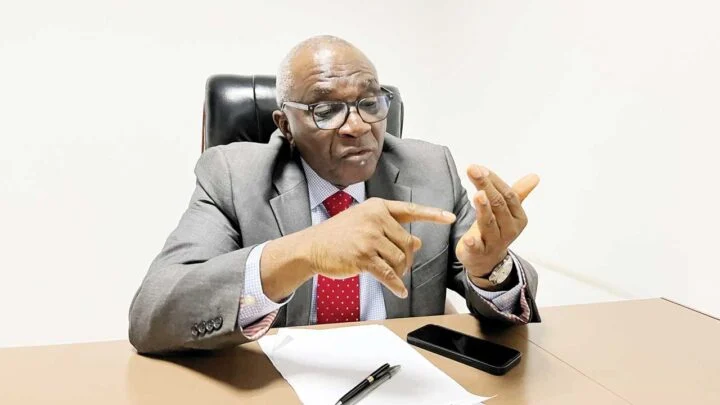Troops of Operation Hadin Kai have killed 24 Boko Haram/ISWAP terrorists in coordinated operations across Borno and Adamawa states.
The defence operations, which spanned between July 4 and 9, featured ambushes, clearance patrols, and close air support in Platari, Komala, Kawuri, Madarari, Leno Kura, Ngoshe-Gava, Ngoshe-Ashigashiya, Amuda-Gava, Bula Marwa, and Pambula, Ngailda, Manjim, and Wulle villages.
Also, the 223 Light Battalion successfully repelled a large-scale attack by over 400 bandits on Ribah town in Kebbi State.
The swift military response in Kebbi led to the neutralisation of several bandits, recovery of weapons, and return of normalcy to affected communities.
A statement by the Acting Deputy Director, Army Public Relations Headquarters, Theatre Command Operation Hadin Kai, Capt Reuben Kovangiya, on Thursday, said the operations in Borno involved a collaboration between land and air components of OPHK, Civilian Joint Task Force and hunters.
The statement read, “In continuation of the series of coordinated offensive operations across the North East Theatre of operations, troops of Operation Hadin Kai (OPHK), bolstered by close air support from the Air Component and collaboration with Civilian Joint Task Force and hunters, have carried out successful kinetic operations against Boko Haram/ISWAP terrorists in theatre between 4 to 9 July 2025, eliminating several terrorists.
“In one of the ambushes conducted at Platari on 4 July 2025, the gallant troops, while lying in wait, made contact with JAS/ISWAP terrorists mounted on bicycles moving from the Sambisa Forest axis to the Timbuktu Triangle.
“The terrorists were immediately subdued with heavy fire, leading to the neutralization of three terrorists.”
It added that “Following intelligence on movements of the insurgents around Komala general area, troops sprang another ambush on the terrorists, neutralising another fighter.
“On exploitation of the general area, troops recovered motorcycles and spare parts, knapsack sprayers, pesticides, and terrorists’ food items.”
The statement said troops conducted a night ambush on the same day at terrorists’ hideouts around the Kawuri general area in Konduga Local Government where they came into contact with the insurgents.
“Consequently, two terrorists conveying logistics were immediately eliminated, while others fled with gunshot wounds. Troops also recovered packets of salt, food seasoning, detergents, and other sundry items,” it said.
It added, “In the same vein, troops on 5 July 2025, intercepted terrorists attempting to access the Madarari Internally Displaced Persons (IDPs) camp in Konduga Local Government Area.
“The troops swiftly engaged the insurgents, killing one terrorist, while others escaped with traces of gunshot wounds. Troops subsequently recovered several rounds of ammunition during the exploitation of the area.
“In another development, troops conducted a fighting patrol to terrorists’ enclaves at Leno Kura. Resultantly, the troops came into contact with the insurgents and engaged them with simultaneous gunfire from different directions.
“Accordingly, three terrorists met their waterloo, while troops continued to exploit the area.”
It stated that “Furthermore, on 6 July 2025, troops carried out a night ambush at a suspected terrorists’ crossing point along the roads Ngoshe-Gava, Ngoshe-Ashigashiya, as well as Amuda-Gava areas. Troops made contact, and an insurgent was neutralised while others fled.
“On 7 July 2025, troops sprang another ambush following an intelligence report close to Sabsawa village. During the operation, troops made contact with terrorists’ logistics suppliers and successfully neutralised two insurgents.
“On the exploitation of the area, the gallant troops recovered bicycles, sacks of slippers, several torchlights, batteries, detergents, salt, and rubber shoes, amongst other sundry items.”
Speaking on the July 8 operations, the statement said, “Troops in conjunction with the Civilian Joint Task Force, under close air support provided by the Air Component of OPHK, conducted clearance operations at Bula Marwa, a known ISWAP/JAS enclave.
“In the course of the operation, the troops eliminated an insurgent and recovered a gun, and terrorists’ uniforms, while their life-supporting structures were totally destroyed.
“Additionally, troops, in a joint operation with hunters and the Civilian Joint Task Force, conducted a fighting patrol at terrorists’ hideouts at Pambula village in Madagali Local Government Area of Adamawa State.
“During the patrol, contact was made with JAS/ISWAP terrorists, who were immediately engaged with a high volume of fire, forcing the terrorists to disperse in disarray.
“Consequent upon the firefight, the troops neutralised a terrorist, recovering four motorcycles and his weapon. The determined troops continued exploiting the general area to rid it of any terrorist activities.”
Also on July 8, the statement said troops, at Bula Marwa, neutralised a terrorist fighter, while others fled, adding that a gun and terrorists’ uniforms were recovered.
“On 9 July 2025, troops in joint operations with the Civilian Joint Task Force conducted a clearance operation in the JAS/ISWAP enclave at Tangalanga and Bula Marwa.
“After a heavy firefight, three insurgents were eliminated. Terrorists’ life-supporting structures in the camp were also destroyed completely. Troops recovered six AK 47 rifles, 47 magazines and ninety rounds of 7.62mm ammunition during the exploitation of the area.
“In furtherance of the offensive operations, troops in conjunction with CJTF conducted an ambush at Ngailda, Manjim and Wulle villages, where contact was made with the insurgents.
“Following the contact, troops successfully eliminated six terrorists while others fled in disarray. Items recovered by the troops during exploitation included motorcycles and bicycles,” it added.
Reuben said the killing of 24 insurgents with close air support underscored the determination, collaboration, and concerted efforts by the troops of Operation Hadin Kai to ensure terrorists were placed on the back foot, to create a conducive environment for socio-economic activities to thrive in the North East region.
The Nigerian Army’s 223 Light Battalion, Zuru, also successfully repelled a large-scale attack by over 400 armed bandits on Ribah town in Danko Wasagu Local Government Area of Kebbi State.
The daring operation, which took place on Wednesday, saw the troops respond swiftly to the invasion, as they engaged the attackers in a fierce gun duel that lasted several hours.
Eyewitnesses described the scene as a battlefield, with the superior firepower and tactics of the army ultimately forcing the bandits to retreat in disarray.
Military sources confirmed that many of the bandits were neutralised during the exchange, while others fled with injuries, abandoning a cache of weapons and ammunition.
The Director of Security at the Kebbi State Cabinet Office, Alhaji Abdulrahman Zagga, while addressing newsmen on Thursday, lauded the courage and professionalism of the soldiers.
“The troops displayed uncommon bravery. Their swift response and combat efficiency turned what could have been a major disaster into a remarkable victory,” he said.
Zagga also applauded the Nigerian Air Force for its timely intervention and aerial support, which he said inflicted heavy casualties on fleeing bandits and disrupted their escape routes.
“The situation is now fully under control. The people of Ribah can breathe a sigh of relief thanks to the coordinated efforts of our security forces,” he added.
Intelligence reports suggested the attackers were part of the same criminal syndicate responsible for recent attacks in Niger State.
In a related development, troops from the Dukku Barracks repelled another bandit assault on Mera in Augie Local Government Area.
The attackers, identified as Lakurawa bandits, attempted to rustle cattle but met stiff resistance from the Nigerian Army, which forced them to flee empty-handed.
Reacting to the successful operations, Governor Nasir Idris commended the gallantry of the security personnel and reaffirmed his administration’s unwavering commitment to strengthening security across the state.
“These victories are proof that with sustained support and collaboration, our security agencies can defeat banditry and restore peace to our communities,” the governor stated.
Just two days earlier, a joint security operation in the same Danko Wasagu axis led to the rescue of six abducted persons and the recovery of stolen livestock.
Residents of Ribah and Mera expressed relief and gratitude, calling on authorities to maintain the current tempo to prevent future attacks.

 BIG STORY3 days ago
BIG STORY3 days ago
 BIG STORY2 days ago
BIG STORY2 days ago
 BIG STORY3 days ago
BIG STORY3 days ago
 BIG STORY2 days ago
BIG STORY2 days ago
 BIG STORY4 days ago
BIG STORY4 days ago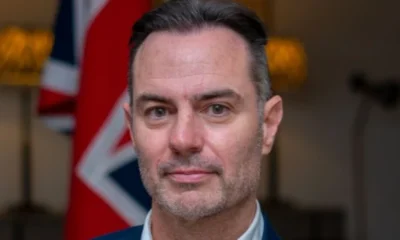
 BIG STORY5 days ago
BIG STORY5 days ago
 BIG STORY21 hours ago
BIG STORY21 hours ago
 BIG STORY2 days ago
BIG STORY2 days ago




